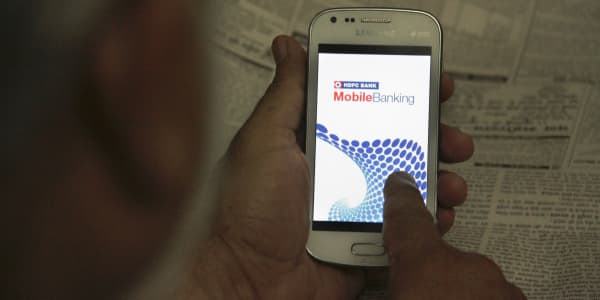It's an annoying inevitability of the modern world that your personal information is going to be compromised at some point and you'll have to go through the hassle of changing your password or account number or signing up for credit monitoring.
For victims it's a headache, but it generally doesn't extend beyond that. For the cybercriminals, though, it can be a wildly lucrative venture.
But how do hackers sell your stolen data, and who is willing to buy it?
Thomas Holt, an associate professor of criminal justice at Michigan State University, recently conducted a study with some colleagues examining the strategies used by individuals operating in the real world for stolen goods in virtual illicit markets that are hidden from the public — specifically, the dark web. This clandestine marketplace is a heavily encrypted underground world within the internet, and it is difficult for authorities to detect the location or owners of the data markets within the dark web.
Funded by the National Institute of Justice, Office of Justice Programs and U.S. Department of Justice, Holt and his colleagues analyzed posts from 10 Russian- and three English-language web forums selling stolen data to engage in identity theft and fraud.
The study found that most of the sellers on the dark web advertise their data and services in forums much like an Amazon or eBay, where buyers and sellers rate each other and the quality of their products being sold — in this case, personal information. While it sounds lawless, there's an honor amongst data thieves. Buyers of stolen data pay first and trust it will be delivered.
Holt claims it is hard to put an exact figure on what hackers are getting for stolen data, for several reasons: Cash transactions tend to be on the rare side in these sorts of transactions, bulk discounts take place for big data scores, and precise negotiations take place via email or private online chat. Yet it appears bitcoin and other web-based currencies are the norm, because the sources are much harder to trace.
What Holt and his colleagues found was that of the 320 transactions they studied, data sellers earned between $1 million and $2 million. Similarly, buyers in 141 of these transactions earned between $1.7 million and $3.4 million through the use of the information they purchased.
How much is your data worth?
So how much is your data worth? It varies, sometimes tremendously, on where it's being sold. To get the broadest possible look at what hackers are buying and selling these days, CNBC.com reached out to several security experts. The prices stolen data is commanding ran the gamut.
According to Michal Salat, threat intelligence manager at Avast Software, an IT security company that develops antivirus software, data is not worth that much individually. Avast focuses on commonly stolen personal data, such as Social Security and credit card numbers.
"The price increase [per account/credit card number] usually isn't linear," says Salat. "A lot of sellers have discounts for higher credentials counts and for regular customers."
Here is what Avast claims data sellers are fetching for the following:
- Credit cards without a balance guarantee: $8 per card (number and CVV)
- $2,000 balance guarantee: $20 per card (number and CVV)
- Driver's license scans: $20
- Email addresses and passwords: $0.70–$2.30
- Social Security numbers: $1 ($1.25 for state selection)
- PayPal credentials/access: $1.50
Beyond the financial data
Yet some thieves are interested in more than just financial data. Some are looking for access to something as mundane as entertainment services or as significant as logins to national services (via FTP or SFTP — file-transfer protocols that allow users to transfer files between computers).
The high prices for .GOV accounts might seem surprising, but Ed Cabrera, chief cybersecurity officer at Trend Micro, says the access they provide commands top dollar.
"These stolen credentials enable criminals to compromise servers to steal data or otherwise launch secondary attacks," he says. "The criminal underground operates on supply and demand so the same market forces we see on surface web you can see in the deep web."
Here is what security software company Trend Micro claims this type of data is commanding today:
- Credit card credentials: $15-$22
- Spotify account: $2.75
- Hulu account: $2.75
- Netflix account: $1–$3
- NOAA.gov account (FTP or SFTP access): $476
- USPS.gov account (FTP or SFTP access): $680
- CDC.gov account (FTP or SFTP access): $340
- Western Union account: $6.80
— By Chris Morris, special to CNBC.com




